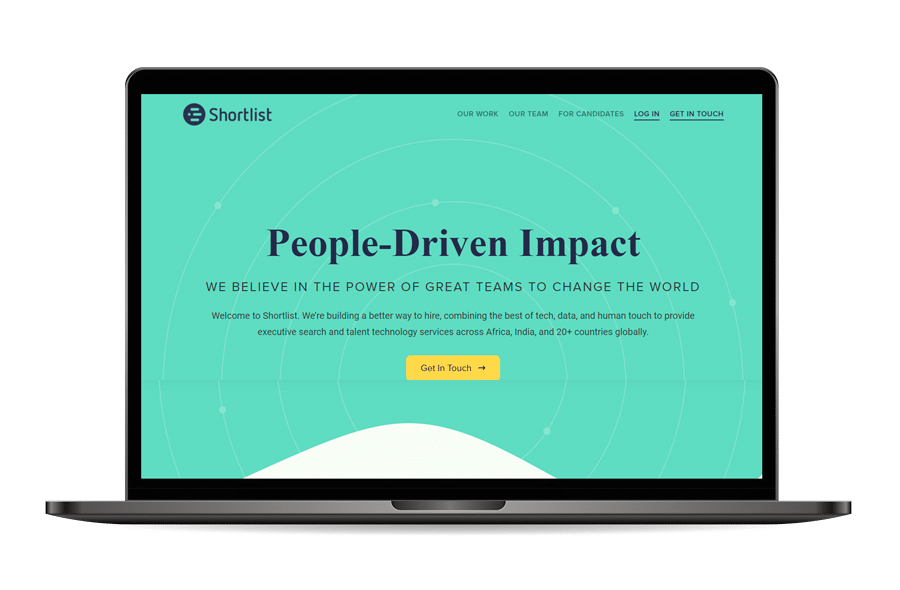Is your business stuck in the mud, tires spinning but going nowhere? Break free with DevOps, the ultimate growth engine for modern businesses.
DevOps – boosting efficiency, innovation, and customer satisfaction, all while sending your business growth into overdrive.
And at Mindbowser, our DevOps expert Manish Kumar Singh, can make it all happen. Our team of seasoned professionals has helped businesses of all sizes leverage the incredible benefits of DevOps.
Ready to ditch the slow lane and hit the fast track?
Here are just a taste of the 11 key benefits of DevOps for business growth that we’ll explore in this article:
There are countless benefits of DevOps. There are also numerous advantages of DevOps from the technical point of view. To name a few, some of the benefits of DevOps for business are listed below-
On examining the above benefits, we may conclude that DevOps technically strengthens the interaction between them. It helps to actively build and scale the project and promote infrastructure structuring and automation of most processes.
With DevOps as a service, teams can actively build and scale projects, leveraging infrastructure as code and automation to streamline processes and reduce manual effort. This helps to improve efficiency, reduce errors, and accelerate software delivery. Additionally, DevOps as a service promotes infrastructure structuring and facilitates the automation of most processes, enabling teams to focus on delivering value to customers.
With the advantages of DevOps implementation, the organizational silos are broken down, making a more stable operating environment, allowing more innovation and creation.
All business data is transparent and available to everyone, making problem identification very easy and quick. Moreover, with the flexibility in the organizational structure, the one who spots the errors fixes them, making more space for new work. Along with that, the benefits of DevOps for business can increase the effectiveness of the development of software.
DevOps is the shortcut to streamlined workflows and lightning-fast innovation. Dive into the top 11 reasons why DevOps is the ultimate business growth hack.
DevOps will help a company get a new product or a market service quicker because of its focus on short sprints and agile methodology. It makes the product fit precisely into the mission of the organization. The broad benefit usually revolves around a shorter cycle time to get an idea in development from the beginning to fully realized, with better quality and perfect alignment.
With the implementation of the DevOps culture, the teams experience a situation similar to cross-pollination. Employees tend to pick up additional skills and have a better understanding of the departments’ routine work. The team members take on similar skills as their developer counterparts hence broadening and improving their skill sets.
One of the business benefits of DevOps is that it facilitates faster feedback at every stage of the software development process. The rapid feedback helps companies deal with uncertainty as they have more information about what will work and what will not. This not just brings clarity to the department and working but also speeds the processes.
Digital transformation comes bearing several threats. Updating the existing systems leads to a lack of protection and adjustments that are more prone to errors. By incorporating protection into the life cycle of software development, DevOps eliminates such risks. It also helps in saving time by tackling security problems.
By running lean and iterating rapidly, enterprises are more effective in using capital and eliminating waste. DevOps is more about building value and coping with waste than cutting costs. DevOps’ implementation allows businesses to reduce operations and moves several responsibilities to the development team.
Employees can learn quickly and have a major impact on the organization by iterating quickly and regularly touching base with peers. Moreover, the projects they are working on are published rapidly and iterated on, making them aware and see the results for themselves. This keeps the employees on their feet and motivates them to work better.
DevOps’ ultimate goal is to deliver value over efficiency. One of the organization’s primary advantages in breaking down the wall between developers and the operations team results in increased cooperation between the two teams and change in handling issues. The production and product teams come together for the overall success of the product.
With the adoption of DevOps, an environment of continuous deliveries is created. This results in the creation of favorable environments, with a continuous emphasis through digital transformation on new changes and enhanced value creation. With the appropriate atmosphere and environment, work is integrated correctly and taken care of.
DevOps may also alter your organization. All code-based frameworks, facilities, environment definitions, workflows and pipelines allow us to make changes easily in both the app codebase and how and where it is deployed.
Undoubtedly, the opportunity to build new systems more efficiently by taking input from developers, teammates and key stakeholders is a key advantage of the DevOps strategy. Through the DevOps approach, businesses remain afloat resulting in a uniform and constant implementation. Due to these techniques, IT organizations effectively deploy faster than lower performers.
DevOps strategy enhances security amidst cybercrime threat. DevSecOps integrates security throughout IT lifecycle, creating secure infrastructure with incremental improvements, automated compliance policies, and granular controls to improve recovery speed. It reduces costs and shortens timelines by integrating into the software pipeline. It identifies potential flaws during early development stages, making it essential to safeguard intellectual property by adopting DevSecOps throughout the delivery pipeline.

Shortlist is a web portal that combines technology and human screening to find outstanding talent for businesses. It provides organizations with top-qualified candidates based on the skills and attributes they demonstrate via in-depth performance analysis.
DevOps, with its collaborative and automated approach to software development and IT operations, proves to be a catalyst for growth across various industries. Here’s a look at how DevOps benefits different sectors:
For any form of project or industry, scalability is one of the top priorities. All industries strive to bring order and clarity in their projects. This is where the implementation of DevOps helps.
With customizing and optimizing processes, all mechanisms are in check and also helps to keep down wastages. It is a sign that it performs well if the product can take up a load and get on with it. With the rise of cloud computing, it has become a big deal. To ensure better scalability, DevOps introduces these activities.
In essence, scalability is what can be taken out by the server and the network and the resources that make it possible. It is important to flexibly configure the device to increase the consumption of resources when required and scale it down when the load is less.
With these methods, the thing is that they need continuous and constant optimization, that is, server, bandwidth and storage space optimization. With DevOps implementation, all changes and alterations can be effectively accommodated, which improves the overall working standard of the organization and smoothes down the processes.
Infrastructure connects different service elements into a comprehensive system that ticks like a clock with networks, virtual machines, load balancers, and so on.
The infrastructure of a project, like the technical specification, changes with the product and is therefore muddied over time if no concrete steps are taken to avoid this. As a result, the operation’s quality of performance and efficiency may be seriously affected by this. This is not just the case with cloud storage, but the situation is similar with dedicated infrastructure.
The manual configuration of infrastructure, however, requires time and energy. By transitioning from manual integration to programmatic and introducing multiple methodologies, such as continuous integration and version control, DevOps makes it a non-issue. This significantly reduces the risk of having bad things in the system and removes the factor of unpredictability.
Programmatic interaction with the infrastructure is structured and simplified to the basics, where the framework follows a collection of patterns. It allows testing as quickly as possible, making room for early changes and fixes. Code review is another critical aspect of infrastructure as a code approach. This offers insight into the situation and provides the team with a view of the infrastructure improvements. This is critical for having everyone synchronized on the same page.
The substantial streamlining of interactions is one of the most evident advantages of applying DevOps concepts. When people are on the same page and every team member is willing to contribute to the process, it is always a positive thing. Since cooperation and collaboration are at the heart of the DevOps strategy, its implementation manages to create a much more innovative atmosphere that can positively affect the product’s quality.
Streamlined communication, for example, makes it easier to get the team on the same page. It also assists with the onboarding of new team members. It is also helpful in defining existing goals.
DevOps automates some routine elements of development and enables developers to concentrate on other elements that are more significant and challenging. Along with this, team scalability is leaping forward as a direct consequence of tighter communication. When the DevOps plan is correctly implemented and operated like a well-oiled machine, it reduces the time that people need to adapt.
DevOps brings numerous business benefits that ultimately lead to superior communication within the organization enhancing connectivity. The more workers connect and work collaboratively, the better they perform together. This improves staff camaraderie and raises the workers’ morale, which is why it is one of the most efficient techniques for team management. Employees work happily together. When everyone is happier, without complications, the job is easily completed. Obviously, improving employee productivity and work relationships between colleagues never has a drawback. For DevOps deployment, this is one of the main market advantages.
Repetitive tasks that only need to be completed are riddled with the production process. It takes time and has a significant effect on the morale of those tasked with such things. Although important, it also takes these routine tasks a precious time that could have been used for something more meaningful. With the aid of automation, DevOps makes it almost a non-issue. Not only does it create a more effective workflow, but it also helps to keep everything recorded and registered.
It is particularly critical for testers who cannot afford to lose anything. The reduction of manual actions leads to the availability of much more time for other important items that cannot be automated.
For writing a concise project, documentation is something that more organizations ignore, but we prioritize this aspect of the life cycle of the project. But no matter how good the initial technical specifications are, in particular for larger and more complex projects, it is also an evolving entity. Irrespective of how hard you try to explain it all to the team when they are finished, things change and are reflected in the technical documents. Or else nothing would have been making sense, and inevitably it will all fall apart.
There is a lot of backtracking and adapting the code and documentation to each other. There is less reliance on documentation because of the straightforward and highlighted ordered structure of the code. It is possible to comprehend anything through the code itself. That makes technology documentation more of solidification of the fact that things are coming to be heralded.
Related Blog- How to Ensure Quality with Automation
With the use of DevOps’ techniques, companies can implement new processes, frameworks and applications far more rapidly. This is because the implementation of DevOps would make your business activities more successful.
You will be able to produce results quicker, and it will take less time for workers to complete the entire process of production and implementation when they work together.
This is beneficial from the perspective of the business. It enables you to optimize business timings for results to be delivered continuously. Ultimately, it is one of the greatest market advantages for DevOps that all owners know the importance of.
Another unbeatable advantage of DevOps is the speed of delivery. The method itself becomes more efficient due to substantial streamlining and reorganization of the workflow. That makes iteration shorter and more responsive while avoiding the risk of breaking stuff while moving too quickly.
The speed is significantly charged by the combination of automation and rigorous testing while reducing the overall workload. This shows faster and continuous integration and delivery.
Moreover, shorter iteration means that their scale will be much smaller, even though there are some errors, which means it will be easier to deal with them. With this technique, the nightmarish notion that everything will break down at once is virtually non-existent.
DevOps as a service provider, we break the barrier between development and operational services. Below we have illustrated the DevOps process in the workflow diagram.
Mindbowser is a Cloud and DevOps consulting company. We have a niche in DevOps auditing and a team of experts who study the current development workflows of the organization along with the IT operation practices and analyze it. Based on the analysis, Our DevOps consulting services allow us to create a detailed plan which helps the organization to adopt a DevOps strategy.
Save more than 80% in running real-time load
Bring your overall server cost down
Move to Docker base setup
Achieve 2x faster releases to your customers
Build ability to scale services dynamically with no service outages

The benefits of DevOps for business give a strong return and allows you to innovate constantly. With a decrease in cost and time, you can keep building good user experiences. To collaborate, connect, complete sales and function more competently, organizations rely heavily on applications.
The future of all industries and businesses is DevOps. They are also working on getting these technologies to market quicker so that they do not miss any opportunities. To achieve these goals, in their software development processes, companies must follow the best DevOps practices. You need not worry; Mindbowser would help you understand the business benefits of DevOps, features and details that your organization needs.
DevOps automation reduces manual effort, eliminates repetitive tasks, and improves efficiency. Organizations can achieve faster and more reliable software delivery, reduced errors, and increased productivity by automating building, testing, deployment, and infrastructure provisioning processes.
Implementing DevOps improves customer satisfaction by delivering high-quality software products more frequently and reliably. Organizations can ensure customer satisfaction and loyalty with faster response times to customer feedback, continuous integration and delivery, and a focus on meeting customer needs.
Yes, DevOps can provide benefits beyond the technical aspects of a business. By encouraging collaboration, breaking down silos, and fostering a culture of continuous improvement, DevOps can enhance overall organizational communication, efficiency, and productivity. It promotes a shared sense of responsibility and accountability, leading to improved teamwork and employee satisfaction.

We worked with Mindbowser on a design sprint, and their team did an awesome job. They really helped us shape the look and feel of our web app and gave us a clean, thoughtful design that our build team could...


The team at Mindbowser was highly professional, patient, and collaborative throughout our engagement. They struck the right balance between offering guidance and taking direction, which made the development process smooth. Although our project wasn’t related to healthcare, we clearly benefited...

Founder, Texas Ranch Security

Mindbowser played a crucial role in helping us bring everything together into a unified, cohesive product. Their commitment to industry-standard coding practices made an enormous difference, allowing developers to seamlessly transition in and out of the project without any confusion....

CEO, MarketsAI

I'm thrilled to be partnering with Mindbowser on our journey with TravelRite. The collaboration has been exceptional, and I’m truly grateful for the dedication and expertise the team has brought to the development process. Their commitment to our mission is...

Founder & CEO, TravelRite

The Mindbowser team's professionalism consistently impressed me. Their commitment to quality shone through in every aspect of the project. They truly went the extra mile, ensuring they understood our needs perfectly and were always willing to invest the time to...

CTO, New Day Therapeutics

I collaborated with Mindbowser for several years on a complex SaaS platform project. They took over a partially completed project and successfully transformed it into a fully functional and robust platform. Throughout the entire process, the quality of their work...

President, E.B. Carlson

Mindbowser and team are professional, talented and very responsive. They got us through a challenging situation with our IOT product successfully. They will be our go to dev team going forward.

Founder, Cascada

Amazing team to work with. Very responsive and very skilled in both front and backend engineering. Looking forward to our next project together.

Co-Founder, Emerge

The team is great to work with. Very professional, on task, and efficient.

Founder, PeriopMD

I can not express enough how pleased we are with the whole team. From the first call and meeting, they took our vision and ran with it. Communication was easy and everyone was flexible to our schedule. I’m excited to...

Founder, Seeke

We had very close go live timeline and Mindbowser team got us live a month before.

CEO, BuyNow WorldWide

If you want a team of great developers, I recommend them for the next project.

Founder, Teach Reach

Mindbowser built both iOS and Android apps for Mindworks, that have stood the test of time. 5 years later they still function quite beautifully. Their team always met their objectives and I'm very happy with the end result. Thank you!

Founder, Mindworks

Mindbowser has delivered a much better quality product than our previous tech vendors. Our product is stable and passed Well Architected Framework Review from AWS.

CEO, PurpleAnt

I am happy to share that we got USD 10k in cloud credits courtesy of our friends at Mindbowser. Thank you Pravin and Ayush, this means a lot to us.

CTO, Shortlist

Mindbowser is one of the reasons that our app is successful. These guys have been a great team.

Founder & CEO, MangoMirror

Kudos for all your hard work and diligence on the Telehealth platform project. You made it possible.

CEO, ThriveHealth

Mindbowser helped us build an awesome iOS app to bring balance to people’s lives.

CEO, SMILINGMIND

They were a very responsive team! Extremely easy to communicate and work with!

Founder & CEO, TotTech

We’ve had very little-to-no hiccups at all—it’s been a really pleasurable experience.

Co-Founder, TEAM8s

Mindbowser was very helpful with explaining the development process and started quickly on the project.

Executive Director of Product Development, Innovation Lab

The greatest benefit we got from Mindbowser is the expertise. Their team has developed apps in all different industries with all types of social proofs.

Co-Founder, Vesica

Mindbowser is professional, efficient and thorough.

Consultant, XPRIZE

Very committed, they create beautiful apps and are very benevolent. They have brilliant Ideas.

Founder, S.T.A.R.S of Wellness

Mindbowser was great; they listened to us a lot and helped us hone in on the actual idea of the app. They had put together fantastic wireframes for us.

Co-Founder, Flat Earth

Ayush was responsive and paired me with the best team member possible, to complete my complex vision and project. Could not be happier.

Founder, Child Life On Call

The team from Mindbowser stayed on task, asked the right questions, and completed the required tasks in a timely fashion! Strong work team!

CEO, SDOH2Health LLC

Mindbowser was easy to work with and hit the ground running, immediately feeling like part of our team.

CEO, Stealth Startup

Mindbowser was an excellent partner in developing my fitness app. They were patient, attentive, & understood my business needs. The end product exceeded my expectations. Thrilled to share it globally.

Owner, Phalanx

Mindbowser's expertise in tech, process & mobile development made them our choice for our app. The team was dedicated to the process & delivered high-quality features on time. They also gave valuable industry advice. Highly recommend them for app development...

Co-Founder, Fox&Fork
